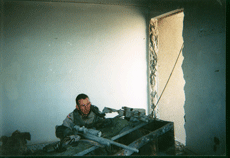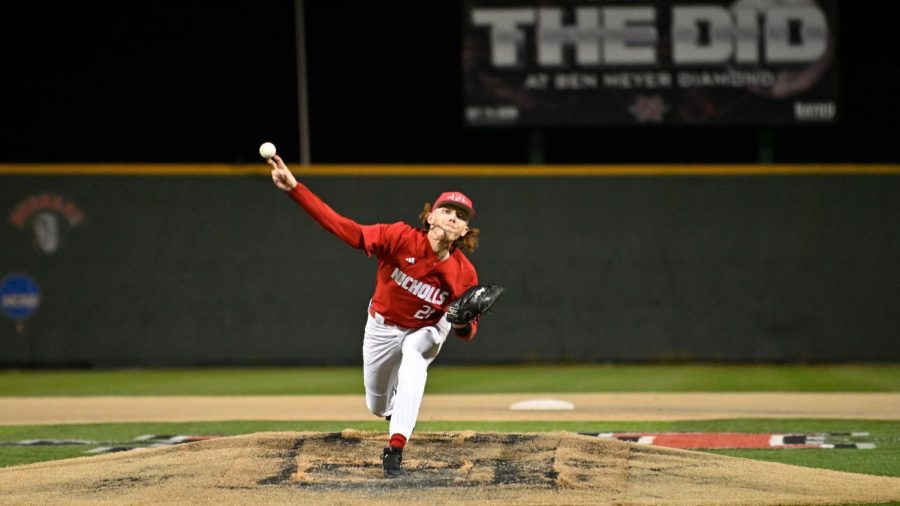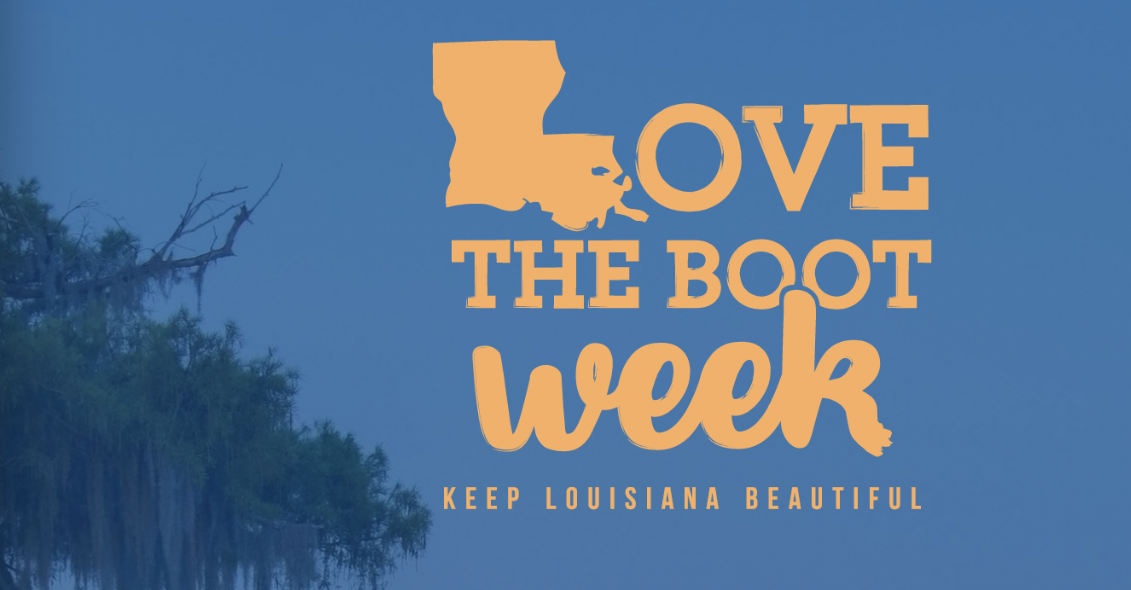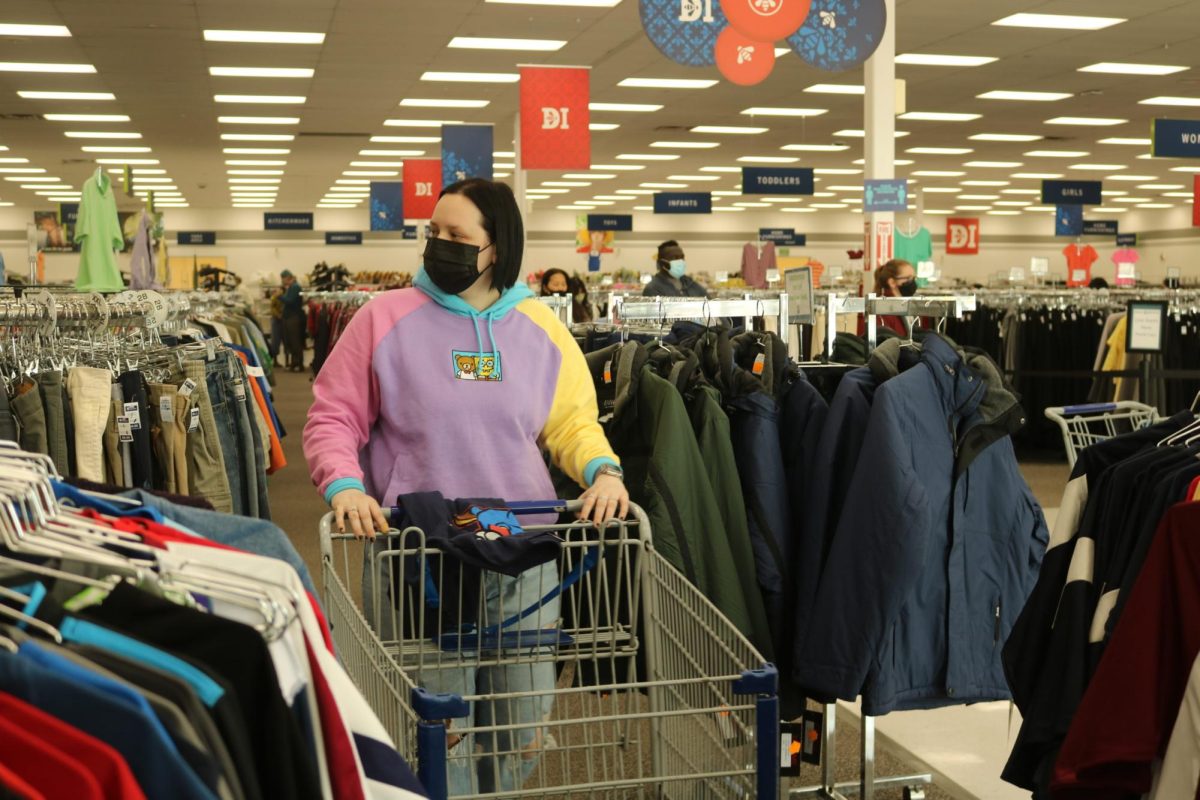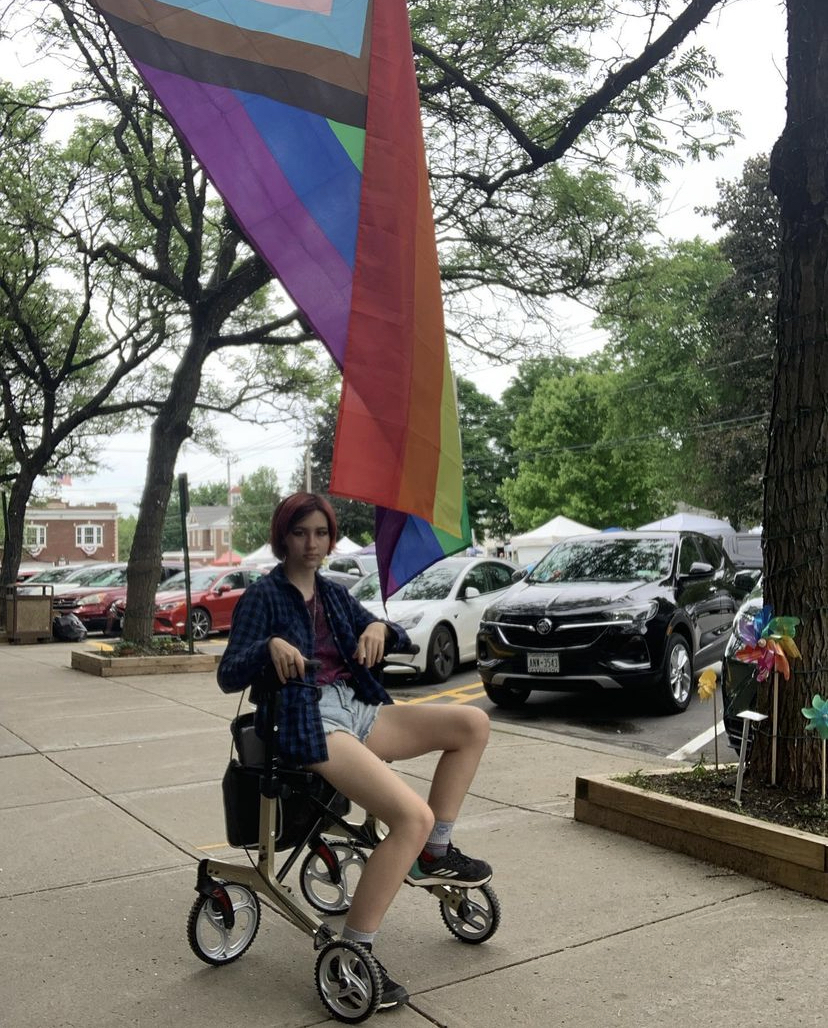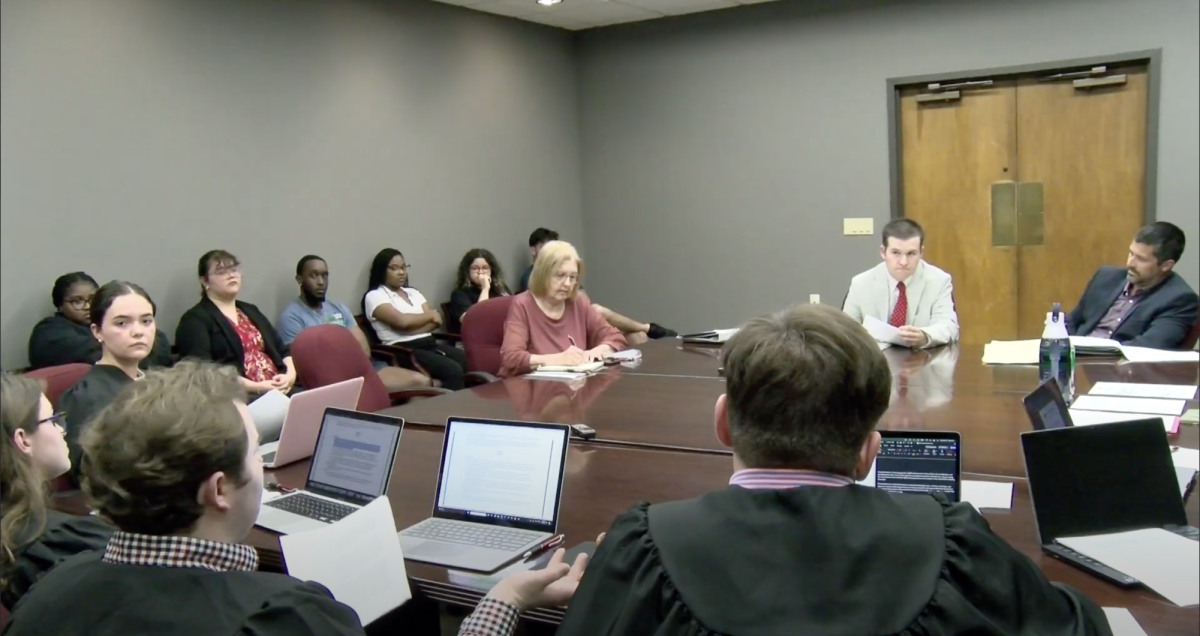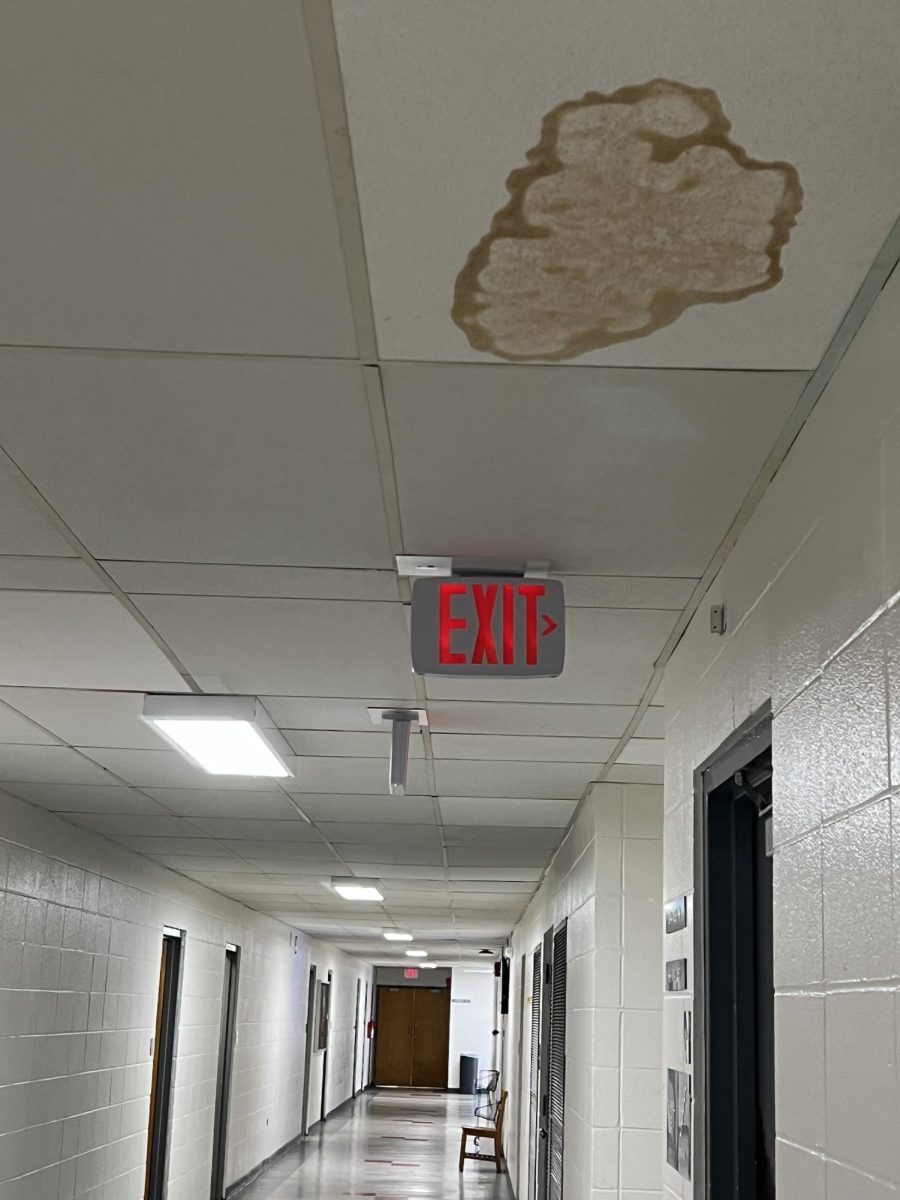To most college students, war is distant. Veteran’s Day comes and goes without much thought, and the Iraq War is merely background noise in their busy lives. Rusten May, business administration junior from Theriot, has experienced the reality of war. A member of the Army National Guard, he served in Iraq from October 2004 until October 2005 as an infantry soldier and as a member of a sniper team.
Because of his job description, May compares his experience to the violent scenes of the Iraq War portrayed on the news. He lost nine people in his unit, Charlie Co. 2-156, also known as “Black Sheep,” of Houma.
Despite the number of fatalities from May’s unit, he says being in Iraq wasn’t all-out warfare. “It’s not all combat,” May says. “Some days there’s nothing going on.”
But something happened one day in March 2005. As a result of that day’s events, May received a Purple Heart and a Bronze Star for valor.
It was during a routine patrol that May became a victim of a bated ambush, a tactic insurgents use to draw attention to a particular event so that soldiers can be unexpectedly attacked from a different direction.
“The point of a bated ambush is to get you out of the Humvees, which are bullet- and blast-proof for the most part, so you expose yourself,” May says.
Shrapnel pierced May’s face, arms and legs, and a bullet zipped into his hip. Despite his injuries and although it wasn’t his duty, May brought order to the situation.
“I took charge, and I took care of everybody else even though I was wounded,” May says. “I put myself last.”
After receiving a couple hours of emergency care at a hospital in Baghdad, May was sent back to his army base. Although his superiors wanted him to receive further medical treatment in Germany, he refused.
“We had taken so many casualties, I didn’t want to go home,” May says. “You’re losing experienced guys and getting fresh guys that don’t know what’s going on. I didn’t want to live with the feeling that I didn’t do everything I could have.”
About a month after the incident, still wearing his bandages, May went back out on patrol.
“You just get back out there and do what you have to do,” May says.
After his job in Iraq was finished, May focused on the reason he joined the Army National Guard – pursuing an education without relying on his parents for financial support.
May had taken courses at Nicholls for two semesters before going to sniper school and being deployed to Iraq. He returned to Nicholls in spring 2006 and has been taking 21 hours of course work each semester.
Making the transition from army man to student was awkward at first, May says.
“It was kind of strange to hear people in my classes whining about assignments, when I had just gotten back from Iraq,” May says. “I went from being in charge of people to having to figure out Algebra problems.”
When school is stressful, especially when he has eight finals to take, May says he thinks about the conveniences he has in America that he did not have in Iraq, like air conditioning and Chee-tos.
A student worker in the Office of Veteran’s Affairs, May’s job entails helping students like himself who are coming to college after serving in a war.
In addition, May is a member of a university committee called the Veterans Support Committee. His job is to inform the administration of the problems student veterans have and to offer solutions.
Although student veterans know the reality of war, May says most college students are naive about the war.
“They think, ‘Why should I care about the war? It doesn’t concern me,'” May says. “But it’s also a great thing that we live in a world where people don’t have to worry.”
With national holidays honoring veterans, May says veterans receive mostly intangible support, like Veteran’s Day ceremonies, when sometimes tangible support, like financial aid, is needed more.
“A lot of people say they support veterans, but a lot of it seems superficial,” May says.
However, May says Nicholls has done a great job giving tangible support to student veterans, such as offering them preferred enrollment status and preferred admissions.
Partly because of his experiences in Iraq, May describes himself as a person who needs constant pressure and always finds work to do.
“I was very close to losing my life in Iraq,” May says. “I feel time pressure. I always ask myself if I could have gotten more done that day. I always want to make good use of my time.


